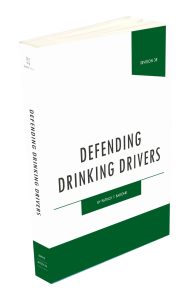Search
Barone Scheduled to Teach Michigan Criminal Defense Lawyers About New Roadside Drug Testing Laws
The Criminal Defense Attorney Association of Michigan (CDAM) has asked Michigan DUI Lawyer Patrick Barone to present a 1-hour Webinar to criminal defense lawyers seeking to learn about recent changes to Michigan law impacting how intoxicated driving cases are investigated at the roadside.
The seminar, entitled Michigan Law Update: Roadside Drug Testing – What You Need to Know, will include a detailed analysis of Michigan’s roadside saliva drug testing program. In this workshop, Mr. Barone will teach other lawyers how to address these preliminary screening tests in court, and how to avoid defense traps that may befall the unwary.
In recent years, law enforcement at all levels of government, State and National, have begun focusing on the investigation and arrest of drivers intoxicated by drugs other than alcohol. Interest in drugged driving has increased with the advent of medical and recreational marijuana, and the saliva swab roadside testing program is designed to facilitate drugged driving arrests.
 Michigan Criminal Defense Lawyer Blog
Michigan Criminal Defense Lawyer Blog


















